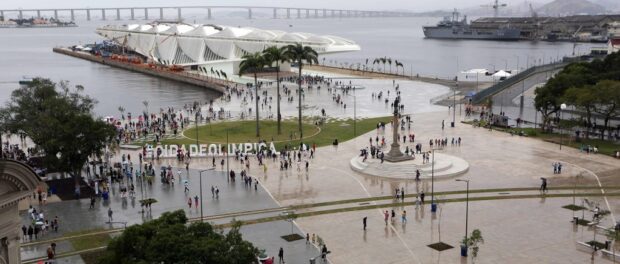
For the original article by Raquel Rolnik in Portuguese published by Yahoo! News click here.
Last month the process to impeach President Dilma Rousseff was confirmed by the Senate and, on the same day, ministers from Michel Temer’s interim government were instated. Congressman Bruno Araújo from the Brazilian Social Democratic Party (PSDB) was chosen to lead the urban policy of the country, and is now responsible for the Ministry of Cities. Regardless of the discussion on the legitimacy of this government, a debate which is far from over, what can we expect from this new minister?
Based on the congressman’s trajectory, who gained notoriety when he cast the last vote needed to approve the impeachment in the House of Representatives, and considering his first statements after being nominated minister, it’s worth asking: should we expect changes, more of the same, or an extension of what society has rejected and that was, in theory, the popular motivation behind the request to impeach the president?
In his first statements, Araújo said he will work towards public-private partnerships (PPPs) to bolster programs such as (the federal housing program) Minha Casa Minha Vida (MCMV). According to him: “We must dispense with the ideological bonds and bureaucracy that impede the progress of the (housing) works.” He also said that the country needs to overcome “a prejudiced relationship on the part of the previous government with capital’s potential for participating in important social programs.”
First, the new minister’s discourse appears to show deep ignorance of MCMV, which is entirely based on a relationship with the private sector. In this program, it is the construction companies–therefore, private companies–that define where, how, and what to build. The role of the government is limited to defining the minimum conditions for the products that these companies offer and to lend feasibility to the purchase of homes produced through public subsidies to the buyers. In this case, there is then no “bureaucracy” nor “ideological bonds” to hinder the program, much less a “prejudiced relationship with capital,” since it is the civil construction sector that was the main player involved in assembling and undertaking MCMV.
We can then infer that the new minister, by proposing more PPPs in the area of urban development, is referring to some examples of structured PPPs, in particular those for preparing cities for the World Cup and the Olympics, which have always had the active participation of the major developers, precisely those that have been under investigation in the Operation Car Wash process, as well as others with less visibility in the media.
An example of “success” would be the PPP for the Porto Maravilha project in the Port Region of Rio de Janeiro. This is a PPP where a consortium, comprised of three construction companies (Odebrecht, OAS, and Carioca Engenharia), will develop all of the urban transformations and manage the area for 15 years. 100% of the funds to finance the operation (including the works and payment for the consortium’s fees) come from public funds, by means of an injection of over R$4 billion from the FGTS, the government severance payment fund.
As the total cost of the operation exceeds R$8 billion in this PPP, the remaining R$4 billion will be raised through real estate speculation on public land. This is because, aside from the injection of billions of reais from the FGTS, public lands were made available (70% of the area of the old port zone of Rio de Janeiro was public) to be exploited by the consortium, in partnership with land developers and investment funds, by launching real estate products such as corporate towers and hotels–that is, only for activities with high returns on investment, and not necessarily what the city of Rio most needs at the moment.
In short, in an operation such as this, what we have that is “private” is basically the profit of the real estate developers, investment funds, and construction companies from the consortium, since the costs are entirely public. There is no major difference between this model and hiring construction companies for large projects and public services, which has infamously been the biggest source of incestuous relationships between the state and the private sector, and is closely tied to our political-electoral model, as we have seen.
Incidentally, the case of the PPP for Porto Maravilha has been the topic of a number of news reports on the bribes paid by companies from the consortium to the ex-president of the House of Representatives, Eduardo Cunha from the Brazilian Democratic Movement Party (PMBD), who allegedly arranged for the FGTS funds for the operation. These companies are being investigated in Operation Car Wash. The press has also reported the new minister’s ties with Odebrecht, one of the participants in the consortium, which according to reports financed his campaign in 2010 as well as campaigns for mayoral candidates connected to him in 2012. It is not yet known if this took place legally or illegally. It’s always worth remembering that payment for the favor of campaign donations occurs through preferential contracting of these companies for large public works.
Now the PPPs, hailed by the new minister as the “solution” to the urban development problems, are nothing more than an extension of the promiscuous relationship between the private sector and the state, which is essentially a privatization of public funds and resources, and also makes it possible for certain political groups to remain in power. This is the manner in which the players directly involved in these initiatives have behaved until now. And they unfortunately are the same players of this much touted “change.”

